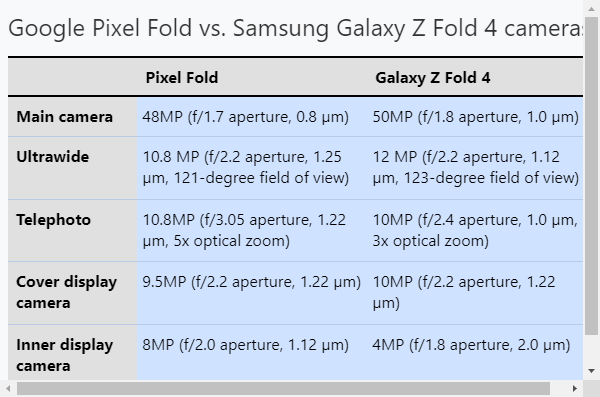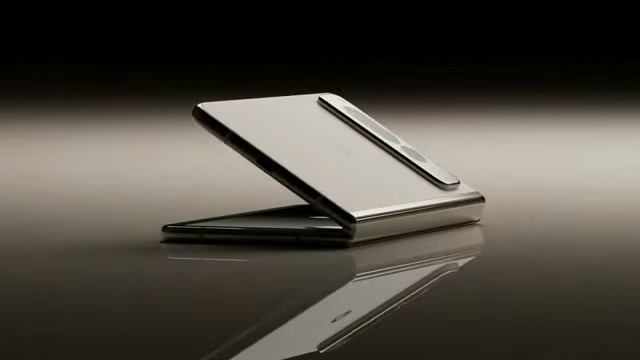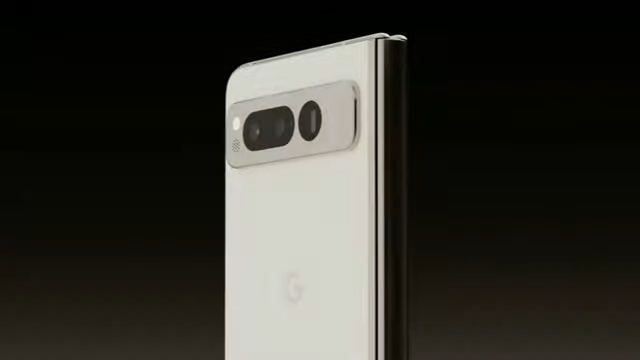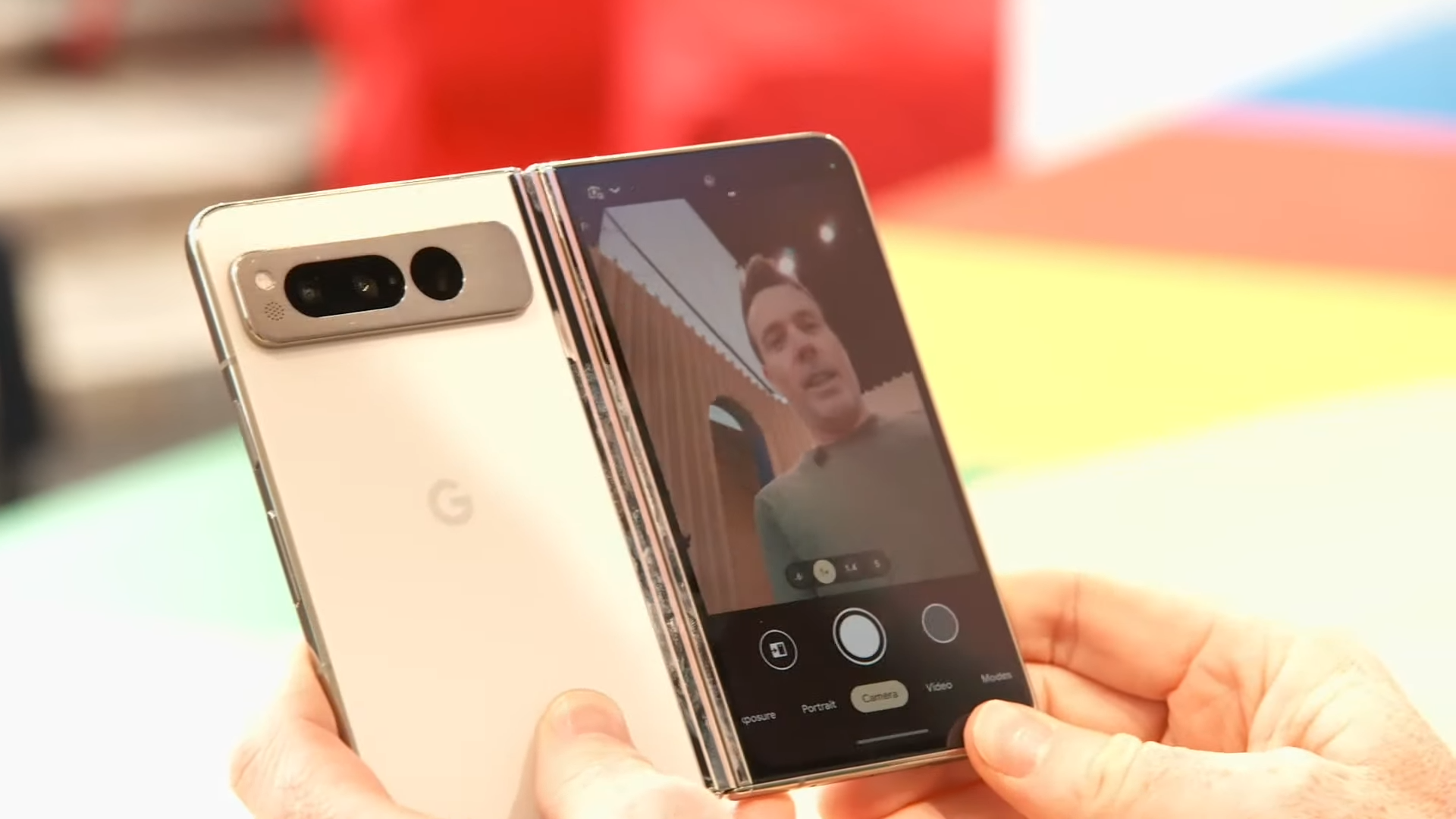Pixel Fold cameras are 'the best'? 3 reasons why Google may be wrong
Google claims the Fold's cameras are the best of any foldable

Sign up to receive The Snapshot, a free special dispatch from Laptop Mag, in your inbox.
You are now subscribed
Your newsletter sign-up was successful
Google made a bold claim at the I/O keynote: The newly unveiled Google Pixel Fold has the "best foldable camera system." In other words, the search engine giant is implying that the Pixel Fold's cameras are better than the shooters on the Samsung Galaxy Z Fold 4. This is not just because of its top-of-the-line triple rear camera system, but according to Google, the Pixel Fold's Tensor G2 chip pushes it to the next level.
As such, thanks to the mélange of computational photography and its camera hardware, Google is confident in declaring the Google Pixel Fold as the best foldable phone for taking photos. Although we're not completely writing off Google's claims (the Tensor G2 chip delivers excellent computational photography), let's take a look at why we're not yet convinced.

3 reasons why the Pixel Fold's cameras may not be 'the best'
Looking at the specs, I'm not convinced that anyone can declare that one phone's camera system is better than the other. It appears that the Pixel Fold may best the Galaxy Z Fold 4 in some areas, but in other cases, it may underperform.
The Pixel Fold ultrawide camera may not topple the Galaxy Z Fold 4
The Pixel Fold has a 10.8 megapixel (MP) camera with an f/2.2 aperture and a 1.25 µm pizel size. Conversely, the Galaxy Z Fold 4 has a 12MP camera with the same aperture and a 1.12µm pixel size.

Right off the bat, the Galaxy Z Fold 4 has a larger megapixel count. I'll admit that this doesn't necessarily mean that it has a better ultrawide camera, but it gives the Galaxy Z Fold 4 a slight edge. Both the Fold and the Z Fold 4 share the same aperture, which tells you how much light the lens gathers. Fortunately for the Pixel Fold, it has a slightly large pixel size than the Galaxy Z Fold 4, which means it should capture more light per pixel.
Finally, it's worth noting that the Galaxy Z Fold 4 captures more scenery, thanks to its 123-degree field of view (FOV) compared to the Pixel Fold's 121-degree FOV.
Our prediction: The Pixel Fold may outperform the Galaxy Z Fold 4 when it comes to low-light performance on ultrawide shots, but the Galaxy Z Fold 4 may deliver slightly more detailed shots in well-lit environments. The Galaxy Z Fold 4 will also capture more scenery in panoramic shots.
Sign up to receive The Snapshot, a free special dispatch from Laptop Mag, in your inbox.
The Pixel Fold's telephoto may be neck-and-neck with Galaxy Z Fold 4
The Pixel Fold and Galaxy Z Fold 4 both have telephoto cameras, allowing users to take sharper, more detailed zoomed-in shots. It's also an excellent camera tool if you want to frame a subject for portraits.

The Pixel Fold has a 10.8 megapixel telephoto camera while the Galaxy Z Fold 4 has a 10MP shooter. Yes, the megapixel count on the Fold is slightly higher, but it's negligible. The aperture on the Pixel Fold is a bit concerning at f/3.05; it's f/2.4 on the Galaxy Z Fold 4 (a lower f-number is better). In other words, the Galaxy Z Fold 4's telephoto camera allows more light to pass through.
Fortunately for the Pixel Fold, it has a larger pixel size (1.25 µm vs. 1.0 µm), so each pixel will capture more light. Plus, with its 5x optical zoom compared to the Galaxy Z Fold 4's 3x optical zoom, you can use the camera hardware's zoom for a little while longer before the software (digital zoom) kicks in and takes over.
However, the Galaxy Z Fold 4 has a longer range for digital zoom at 30x compared to the Pixel Fold's 20x.
Our prediction: The Galaxy Z Fold 4 has the capability to zoom in much further and capture more objects in the background. Thanks to its wider aperture, it may also perform better in low-light conditions (though the Pixel Fold's larger pixel size may compensate for this). On the plus side, the Google Pixel Fold may capture more detailed zoom-in pictures up to 5x zoom. With Google using the words "SuperRes" to describe the Pixel Fold's 20x digital zoom, there's a chance it may be more crisp than the Galaxy Z Fold 4's digital zoom photos.
The Pixel Fold's cover display camera may not be better than the Galaxy Z Fold 4
I'd imagine that many foldable users will use the cover display camera because it's an easy, seamless way to take selfies without unfolding the device. The specs on the Google Pixel Fold's cover camera appear to almost match the Galaxy Z Fold 4. They both have the same aperture and pixel size (f/2.2 and 1.22 µm). Plus, the Pixel Fold's cover display has a 9.5MP camera, which isn't significantly different from the Galaxy Z Fold 4's 10MP cover display shooter.

As such, the Pixel Fold's cover display camera performance may not be that much better than the Galaxy Z Fold 4. however, with its Tensor G2 chip, perhaps the image processing software may best the Samsung foldable. However, since we can't compare the photos with our naked eyes just yet, it's difficult to say for sure.
Our prediction: The cover display cameras on both the Galaxy Z Fold 4 and the Pixel Fold will perform similarly.
Outlook
There's a chance that Google may be spot on. After all, with the powerful image signal processor inside the Tensor G2 chip, the Google Pixel Fold may best the Samsung Galaxy Z Fold 4.
Plus, you'll get cool goodies like Photo Unblur, Magic Eraser, Real Tone, Night Sight, and other features which, for some, are far more important than megapixels, sensor size, and other hardware mumbo jumbo. Still, I speculate the Google Pixel Fold may outperform the Galaxy Z Fold 4 in a few areas, but not nearly enough to deem it the best foldable camera system on the market.
Again, we'll have to do a camera comparison of both foldables to know for sure, but for the time being, I remain skeptical and unconvinced.
Read our full in-depth comparative analysis of the Google Pixel Fold vs. Samsung Galaxy Z Fold 4.
Kimberly Gedeon, holding a Master's degree in International Journalism, launched her career as a journalist for MadameNoire's business beat in 2013. She loved translating stuffy stories about the economy, personal finance and investing into digestible, easy-to-understand, entertaining stories for young women of color. During her time on the business beat, she discovered her passion for tech as she dove into articles about tech entrepreneurship, the Consumer Electronics Show (CES) and the latest tablets. After eight years of freelancing, dabbling in a myriad of beats, she's finally found a home at Laptop Mag that accepts her as the crypto-addicted, virtual reality-loving, investing-focused, tech-fascinated nerd she is. Woot!

